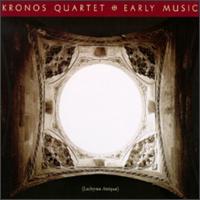.jpg)
Henry Purcell composed his masque "The Fairy-Queen" in 1692, three years before his death at age 34, as an adaptation of Shakespeare's "A Midsummer Night's Dream". The score was lost and not rediscovered until 1901. "The Plaint" (O, let me Weep!) is the well-known aria sang by Juno in Act V. It was performed live today in Ueno, Tokyo by the "Lusthoffers" ensemble.
"The humor melancholicus, when it takes fire and glows, generates the frenzy (furor) which leads us to wisdom and revelation, especially when it is combined with a heavenly influence, above all with that of Saturn... Moreoever, this humor melancholicus has such power that they say it attracts certain demons into our bodies, through whose presence and activity men fall into ecstasies and pronounce many wonderful things..."This quote reminds me that our interpretation of something even as primal and basic as human emotion is socially constructed. I find Purcell's humor melancholis -- although admittedly pretty heavy for what was a sunny Sunday afternoon -- some refreshing, passionate depth in contrast to that which I'm sometimes forced to consider a contemporary, almost pathological, obsession with superficial 'positivity' (... yes, I've worked in the service industry for far too long!)
-- Heinrich Cornelius Agrippa
De Occulta Philosophia
Saturn and Melancholy (Nelson, 1964)
"Melancholy, which was during the immediate past in Christian Europe considered to be a temperament of sad, poor and unsuccessful individuals, assumed a completely different significance in the sixteenth century. The increasing interest in Kabbalah, the ancient Jewish mystical philosophy, as well as a renewed awareness of texts such as the pseudo-Aristotelian treatise called Problemata physica, resulted in a view of melancholy as the humor of great men."
-- Goldberg, pg65 issue #45
"The history of melancholia is that of an innately human experience of suffering becoming the object of a cultural construct. As a mood or emotion, the experience of being melancholy or depressed is at the very heart of being human: feeling down or blue or unhappy, being dispirited, discouraged, disappointed, dejected, despondent, melancholy, depressed, or despairing many aspects of such affective experiences are within the normal range. Everyone suffers from this kind of metaphorical melancholia, as Robert Burton said, because "Melancholy in this sense is the character of mortality" (The Anatomy of Melancholy, I.I.I.5.), that is, a figure of the human condition."
-- Francis Zimmermann 'The History of Melancholy'
This act was followed by the more lively 'Cathelina Early Music Ensemble' (カテリーナ古楽合奏団). Well-known for their collection of rare, period instruments, they have brought early music to a popular audience in Japan. It was an excellent performance!


Robahouse >>












No comments:
Post a Comment